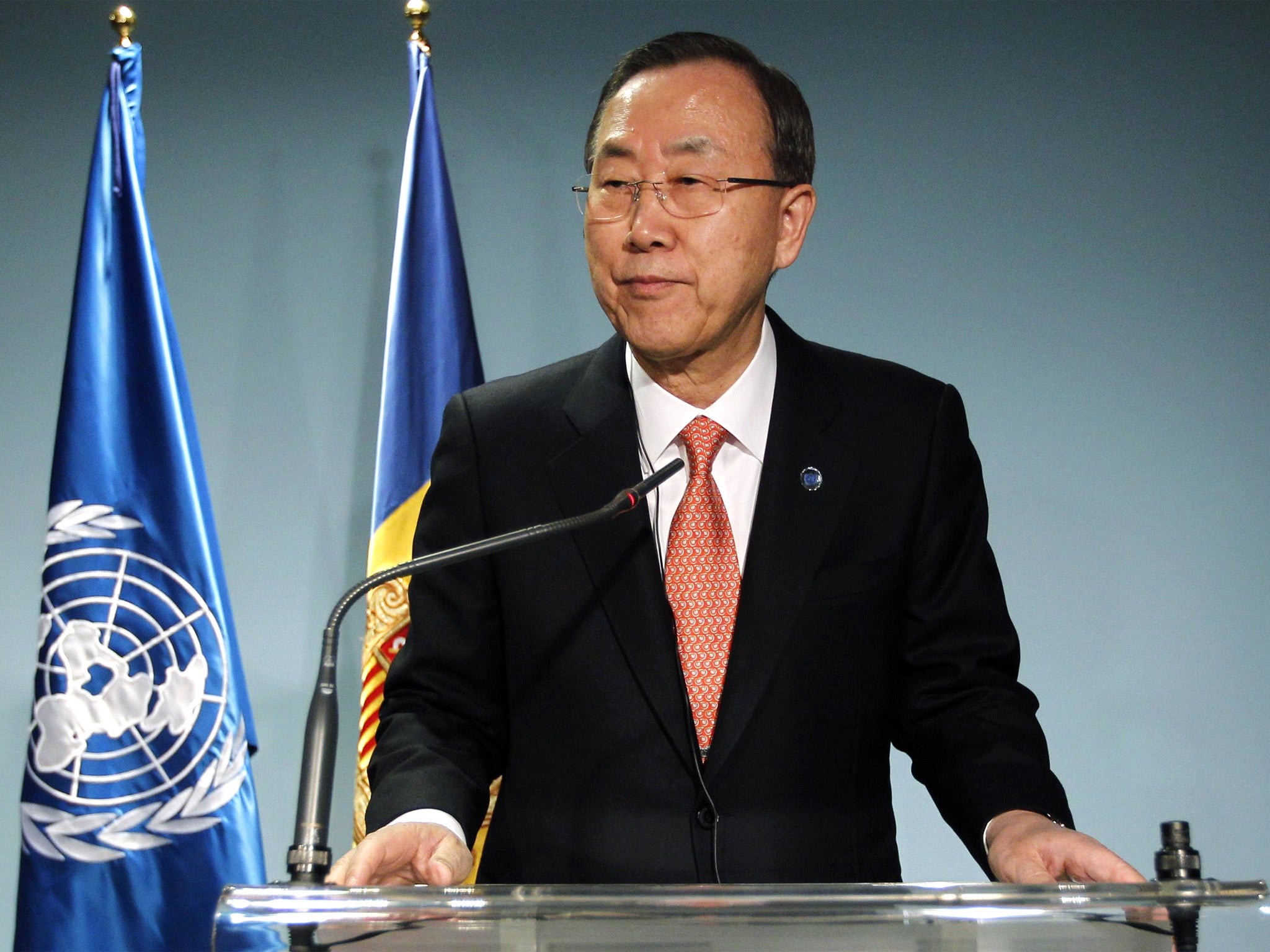You've gone too far, UN chief tells North Korea
Ban Ki-Moon urges restraint as Pyongyang announces plan to reopen nuclear reactor

Your support helps us to tell the story
From reproductive rights to climate change to Big Tech, The Independent is on the ground when the story is developing. Whether it's investigating the financials of Elon Musk's pro-Trump PAC or producing our latest documentary, 'The A Word', which shines a light on the American women fighting for reproductive rights, we know how important it is to parse out the facts from the messaging.
At such a critical moment in US history, we need reporters on the ground. Your donation allows us to keep sending journalists to speak to both sides of the story.
The Independent is trusted by Americans across the entire political spectrum. And unlike many other quality news outlets, we choose not to lock Americans out of our reporting and analysis with paywalls. We believe quality journalism should be available to everyone, paid for by those who can afford it.
Your support makes all the difference.Stepping up its efforts to extract concessions from the United States and its allies, North Korea played perhaps its most powerful card by announcing it will restart the plutonium reactor at its key Yongbyon nuclear complex, which supplies material for nuclear weapons.
Re-activating the reactor could take several months and thus of itself will have scant practical impact on the already fraught situation on the Korean peninsula, where almost daily threats from the Pyongyang regime have raised tensions to levels not seen in years.
But the move brings into play what has historically been the North’s most effective bargaining chip in its dealings with the West, and comes barely a day after the young leader Kim Jong-un and his government declared that nuclear weapons were “the nation’s life” and would not be traded away, even for “billions of dollars.”
The current crisis “has gone too far,” Ban Ki-moon, the United Nations Secretary General and also a former foreign minister of South Korea, told reporters as he called for urgent talks with Pyongyang. Russia and China, two other members of the long-suspended six nations negotiating group on the North’s nuclear programme, urged restraint.
In Washington, the news has not shifted the assessment that the regime has no intention of provoking a war, and that the rhetoric has two purposes: to win diplomatic concessions from the West, and boost the credentials of the untested Mr Kim, who has been in power for just 15 months and is still a largely unknown quantity.
The Obama administration is as concerned as anyone that with tensions so high, a small miscalculation or single hostile act could detonate full-scale conflict. As a precaution, it has moved a missile defence warship from Japan closer to Korean waters. But for the moment it sees no sign of an attack from the North. As of today, the Kaesong industrial zone, six miles north of the Demilitarized Zone that separates the two Koreas and jointly operated with the South, was still operating normally, despite Pyongyang’s announcement it had severed its military hotline with the South.
“We are not seeing changes to the North Korean military posture such as large scale mobilisation or the repositioning of forces,” Jay Carney, the White House spokesman, told reporters. Analysts are unsure of the North’s precise motives in provoking the latest showdown. Most likely, however, they believe, the bellicose behaviour reflects genuine anger at the UN sanctions that greeted February’s nuclear test – the regime’s third since 2006 – rather than the diplomatic offers the regime may have expected.
Treaty to regulate arms trade approved
The United Nations General Assembly has overwhelmingly adopted the first UN treaty in history attempting to regulate the estimated $70bn global arms trade, aimed at keeping weapons out of the hands of rebel groups, terrorists and organised crime.
The measure would have been approved last week by consensus, without a formal vote by the 193 members of the Assembly, but for opposition from Iran, Syria and North Korea. Today, those three were the only votes against, as the treaty was approved by 154 countries, while 23 member states abstained.
The landmark agreement requires all countries to establish national regulations to control the transfer of conventional arms, their parts and components, and to regulate the activities of arms dealers.
The treaty will take effect as soon as 50 states have ratified it.
Rupert Cornwell
Join our commenting forum
Join thought-provoking conversations, follow other Independent readers and see their replies
Comments